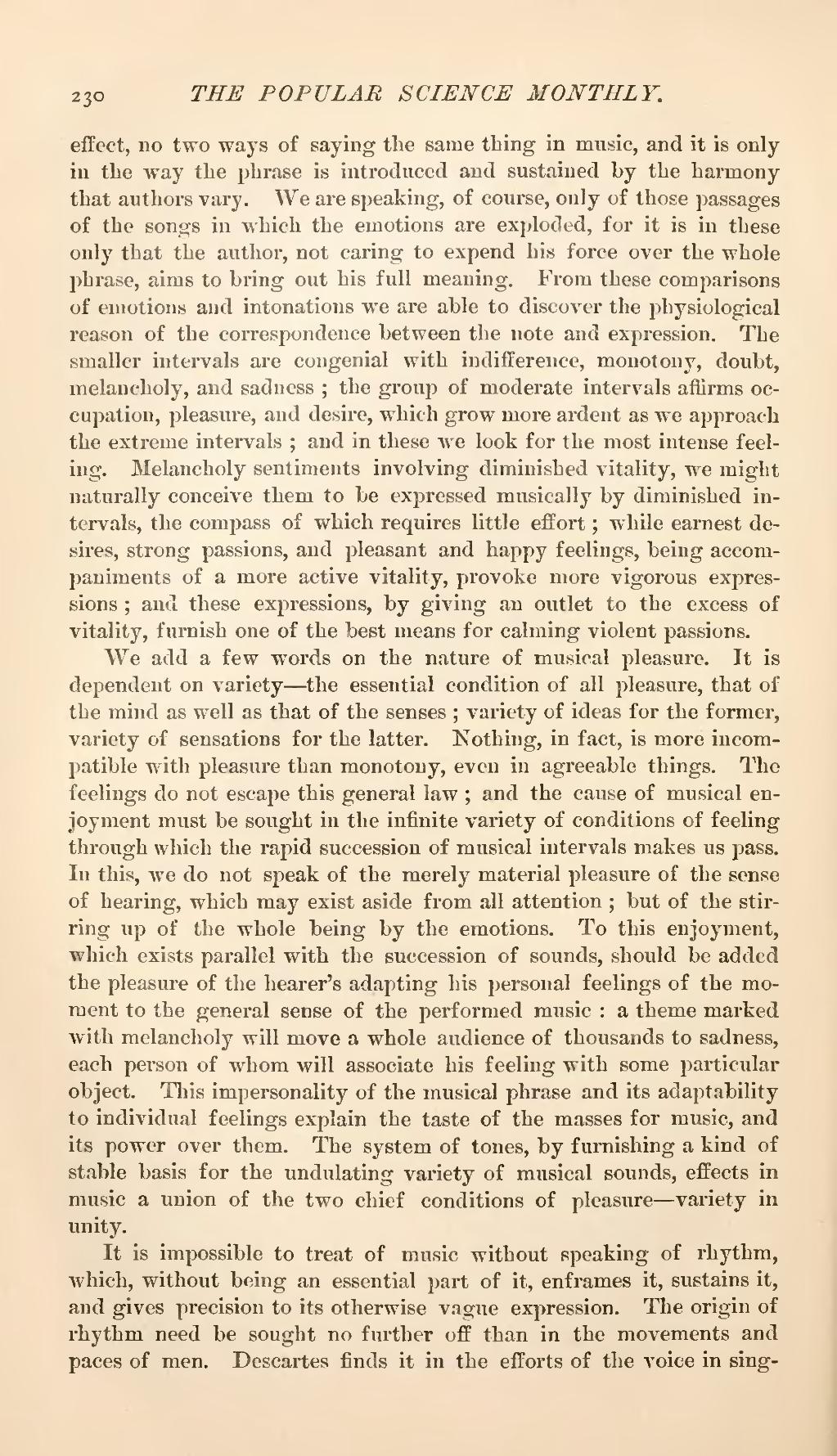effect, no two ways of saying the same thing in music, and it is only in the way the phrase is introduced and sustained by the harmony that authors vary. We are speaking, of course, only of those passages of the songs in which the emotions are exploded, for it is in these only that the author, not caring to expend his force over the whole phrase, aims to bring out his full meaning. From these comparisons of emotions and intonations we are able to discover the physiological reason of the correspondence between the note and expression. The smaller intervals are congenial with indifference, monotony, doubt, melancholy, and sadness; the group of moderate intervals affirms occupation, pleasure, and desire, which grow more ardent as we approach the extreme intervals; and in these we look for the most intense feeling. Melancholy sentiments involving diminished vitality, we might naturally conceive them to be expressed musically by diminished intervals, the compass of which requires little effort; while earnest desires, strong passions, and pleasant and happy feelings, being accompaniments of a more active vitality, provoke more vigorous expressions; and these expressions, by giving an outlet to the excess of vitality, furnish one of the best means for calming violent passions.
We add a few words on the nature of musical pleasure. It is dependent on variety—the essential condition of all pleasure, that of the mind as well as that of the senses; variety of ideas for the former, variety of sensations for the latter. Nothing, in fact, is more incompatible with pleasure than monotony, even in agreeable things. The feelings do not escape this general law; and the cause of musical enjoyment must be sought in the infinite variety of conditions of feeling through which the rapid succession of musical intervals makes us pass. In this, we do not speak of the merely material pleasure of the sense of hearing, which may exist aside from all attention; but of the stirring up of the whole being by the emotions. To this enjoyment, which exists parallel with the succession of sounds, should be added the pleasure of the hearer's adapting his personal feelings of the moment to the general sense of the performed music: a theme marked with melancholy will move a whole audience of thousands to sadness, each person of whom will associate his feeling with some particular object. This impersonality of the musical phrase and its adaptability to individual feelings explain the taste of the masses for music, and its power over them. The system of tones, by furnishing a kind of stable basis for the undulating variety of musical sounds, effects in music a union of the two chief conditions of pleasure—variety in unity.
It is impossible to treat of music without speaking of rhythm, which, without being an essential part of it, enframes it, sustains it, and gives precision to its otherwise vague expression. The origin of rhythm need be sought no further off than in the movements and paces of men. Descartes finds it in the efforts of the voice in sing-

